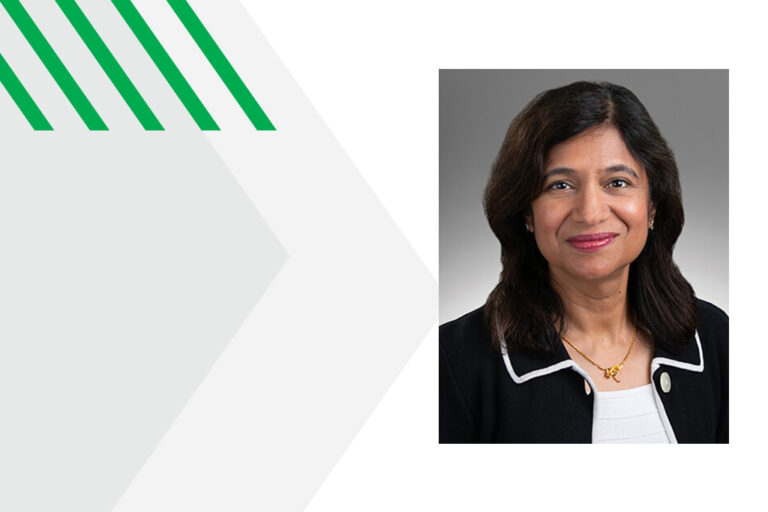TLAS Corner: Faculty development needs assessment points the way to the future
 In this edition of Teaching, Learning, and Scholarship (TLAS) Corner, Drs. Adrienne Salentiny and Richard Van Eck present an article entitled “Faculty development needs assessment points the way to the future.”
In this edition of Teaching, Learning, and Scholarship (TLAS) Corner, Drs. Adrienne Salentiny and Richard Van Eck present an article entitled “Faculty development needs assessment points the way to the future.”
As part of our ongoing strategic planning, we conducted our annual faculty development needs assessment to inform plans for the coming year. Thank you to all who provided input on the 2020–21 survey—we heard you! We received a total of 155 unique responses, representing more than a dozen school-wide departments and 40 clinical faculty from around the state. The feedback and suggestions were outstanding, and we are excited about the new ideas they have inspired. Here are just a few:
- Use social media to provide just-in-time faculty development (follow us at @SMHS_TLAS and use the #AskTLAS hashtag to get real-time responses to your faculty development questions).
- Text message subscriptions to upcoming events.
- Include Outlook calendar invitations in our faculty development marketing.
- TLAS in Ten (10-minute recorded takeaway versions of our full workshops).
In the balance of this article, we’ll share more about these and other planned innovations in response to what you told us are the most important needs you have for faculty development. Before we do this, however, we want to draw your attention to another result of our strategic planning which you may have picked up on from the title of this article: Education Resources (ER) now comprises two strategic units: The Medical Curriculum Unit and the Teaching, Learning, and Scholarship (TLAS) Unit. Accordingly, the title of the ER Corner quarterly update is now the “TLAS Corner.”
Here are some of the other changes we have planned for faculty development this year:
Expanded clinical faculty development offerings: Faculty development for clinical environments was already an area of emphasis for us, and we received valuable feedback from clinician educators in several areas, including,
- Tele-precepting
- Clinical precepting
- Feedback and evaluation
We’ll offer more clinician-focused events (virtually until safety permits in-person) and include clinical applications during all offerings. Our TLAS in Ten sessions will be available 24-7 so that clinicians and others who can’t attend our full sessions can get what they need to know in 10 minutes, whenever they need it. Our TLAS Resource Repository includes both in-house materials and open educational resources (OERs), which are categorized to make it easy to find just what you need, whenever you need it.
Marketing, modality, and access: Many respondents indicated that they were not always aware of our offerings, and we have plans to be even more visible. In addition to our normal marketing practice through the For Your Health newsletter, the print and digital signage across the school, and our weekly email announcements for three weeks preceding our events, we also plan to offer:
- SMS (cell phone texting) subscription.
- Outlook calendar invites.
- Expanded email lists of clinical faculty.
- The @SMHS_TLAS Twitter account for teaching tips and announcements, and the #AskTLAS hashtag to answer your just-in-time questions.
TLAS in 10 will double our offerings and provide more access to faculty development. We’ll also offer virtual events on other campuses where the SMHS medical curriculum occurs (and in-person when safety allows).
Better online teaching: COVID forced us all to adjust overnight, making it impossible to do more than the minimum needed to design online curriculum. Now, however, after eight months of practice, many of you wanted to know more about evidence-based guidelines for teaching online. As a result, online teaching will remain a core component of TLAS faculty development offerings in the 2020–2021 academic year, with sessions on active learning (completed in September) and our November 19 session, which focused on key strategies and tools for improving your online course. If you missed those, you can watch these and other previous recordings back on the TLAS faculty development page. Future sessions will provide hands-on training for building asynchronous learning modules with tools like SimTutor.
Additional offerings in coordination with campus resources: Time efficiencies, organization, and productivity were also identified as urgent needs, especially in relation to the move many programs have made to online teaching. We offered a session on this in October, and more are planned for the future. A TLAS book study on this topic is currently in progress. Additional events will be marketed using the new methods described above, as well as the TLAS Website, For Your Health newsletter, and by email. Other planned offerings include the following:
- Diversity and inclusion (in conjunction with Teaching, Transformation, and Development Academy, or TTaDA, and the Diversity and Inclusion office).
- Leadership (in conjunction with the Office of Education and Faculty Affairs).
- Specific technical or software training (in conjunction with TTaDA, SMHS Information Resources, and UND’s University Information Technology).
These are just some of the changes you can expect to see as we move forward. A complete narrative summary and survey data are available upon request. If you have questions or comments, please contact Dr. Adrienne Salentiny (adrienne.salentiny@UND.edu) or Dr. Rick Van Eck (richard.vaneck@und.edu).



